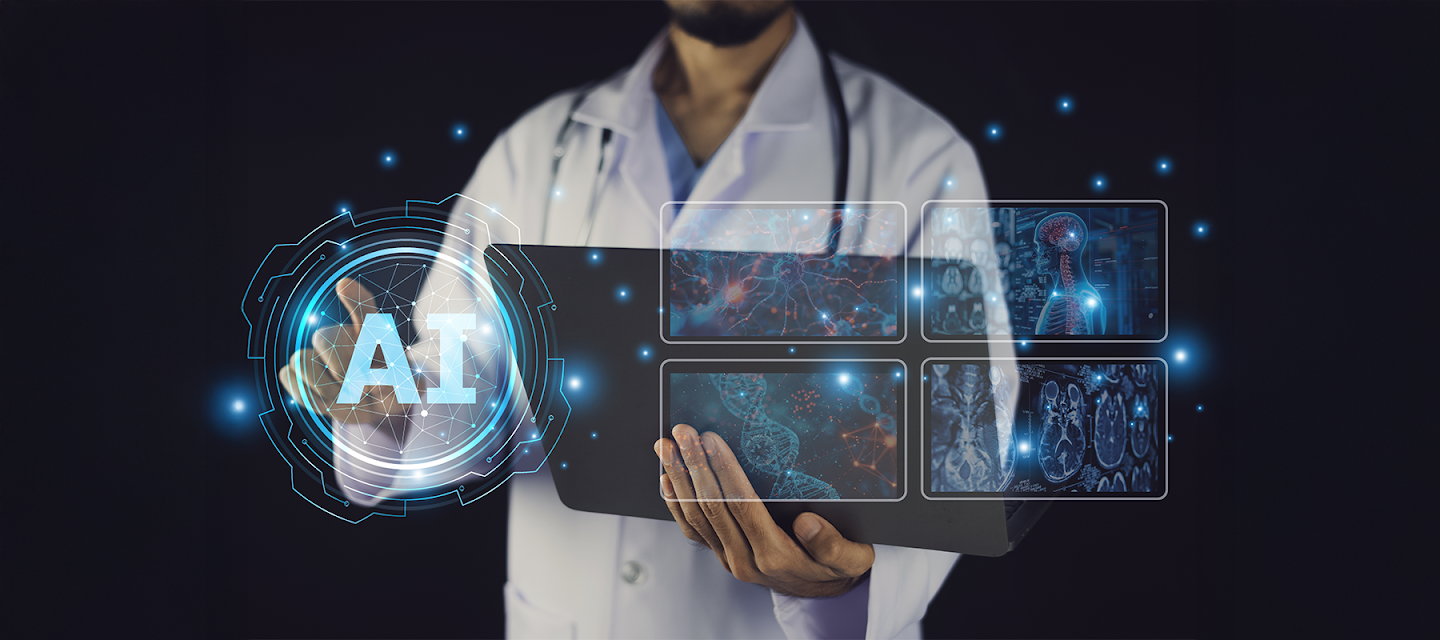Addressing a jaw-dropping personal wake-up call…. A USA immigrant has shared how a few years ago, her father (an immigrant with a darker skin tone) was misdiagnosed at an ER in the United States. He was suffering from a heart condition, but his symptoms were flagged as something minor by the AI-powered diagnostic system. Thankfully, a senior doctor had intervened, and the mistake was caught. Such a grim, chilly night was enough for the immigrant, sitting in the cold waiting room, to realize how AI healthcare bias is more than a mere technical glitch, because it could set the rolling ball in motion to take on life and death.
However, we can never dismiss these personal stories – such reviews are truly not rare! Across the country, it has been found that medical AI misdiagnosis is disproportionately affecting minority groups. All the very best algorithms designed to speed up diagnosis often end up replicating the biases buried within their input training data.
We will now discover the reasons behind the persistence of racial bias in diagnostics.
At the same time, we will also explore how inclusive medical data is likely to shape the future and what it implies for healthcare equity in America.
Why does AI healthcare bias disproportionately affect the minority groups in the USA?
AI-driven diagnostic tools draw out answers from massive datasets. However, when the same datasets overwhelmingly represent white patients, the system assumes that “normal” is synonymous with white. Here is how the healthcare algorithm bias is fueled, whereby the minorities are left underrepresented.
Let us take an instance – a NIH AI health disparities report is highlighting how Black patients are at a higher risk of being underdiagnosed for skin conditions since several dermatology datasets are developed on lighter skin tones. Bearing the similarity, the Hispanic population is often kept out of longitudinal studies, which limits the AI’s ability for accurate interpretation of their medical risks.
Well, we cannot just dismiss it as a statistical gap, because the error is a human one. The same immigrant mentions here that she still recalls the confusion on her father’s face when he questioned, “Why did the machine not see it?”. She says the questions will never leave her side.
How can the A-driven tools lead to a higher misdiagnosis rate?
According to research, medical AI misdiagnosis occurs more frequently in communities of color. A 2022 ACLU AI healthcare report has stated that minority patients in the US are up to 30% more likely to experience diagnostic errors with AI-supported tools in comparison to white patients.
The guiding reason is really simple. The algorithms are trained on biased data that replicates the same bias. This is how it results in racial bias in diagnostics, particularly in oncology, cardiology, and dermatology. In fact, the well-funded hospital systems are likely to fall victim. Unless inclusive data is provided, AI’s predictions will continue to remain skewed, which will increase the fatal risks of misdiagnosis.

The root cause – Non-inclusive datasets
Looking closely, one realizes that the training data is the real culprit. A dataset that is majorly built on white, urban, insured patients will most definitely and naturally exclude the rural, Hispanic, or immigrant communities. This is the precise reason why NIH AI health disparities research emphasizes diversifying the patient data.
Due to the scarcity of diverse datasets, the healthcare algorithm bias persists and compounds. A result found by one Stanford AIMI research project mentions that the AI models trained without inclusive representation had performed significantly worse for Black and Asian patients. So, it confirms what most families already know, that is, the dearth of inclusive medical data costs certain lives.
How does the lack of data on Hispanic populations affect AI accuracy?
Hispanic patients represent nearly 20% of the US population. They are severely underrepresented in medical research. This is how the blind spots are created in AI predictions.
For instance, studies are showing that diabetes risk scores, which are based on incomplete Hispanic data, tend to underestimate severity. As a result, it leads to delayed treatment.
Rather, it is more than just a data problem, because the real issue is the ethical one. As noted by the FDA AI bias guidelines, systemic exclusion from datasets indicates systemic exclusion from care.
The ethical implications of biased AI in medicine
Well, the ethical stakes, to say it correctly, are enormous. AI healthcare bias pushes forth questions regarding fairness, safety, and accountability. If the algorithms are repeatedly misdiagnosing the minority patients, then is it because we are reinforcing structural inequality through technology?
Organizations like The Algorithmic Justice League argue that AI systems should undergo the same ethical scrutiny as clinical trials. Yes, very agreeable.
In the words of the immigrant, her personal takeaway after watching her father nearly suffer a preventable tragedy is rather simple – the patients need not have to wonder whether the “machine” is regarding them as fully human.
Current Federal guidelines for auditing AI bias
Thankfully, the US government has woken up on time and begun to address these concerns. As stated by the FDA AI bias guidelines, the medical AI tools have to undergo post-market monitoring for fairness and accuracy assessment. Meanwhile, the Department of Health and Human Services is working together with the NIH AI health disparities initiative for auditing datasets and promoting equity.
However, the guidelines are only as strong as their enforcement. As pointed out by the ACLU AI healthcare report, transparency and accountability are mandatory for marginalized groups to be safe from the brunt of medical AI misdiagnosis.

The consequences of AI misdiagnosis for minority communities
In a line, the consequences are devastating. Ranging from delayed cancer diagnoses to misidentified cardiac events, radical bias in diagnostics translates into higher mortality rates. As revealed in a 2021 study, AI-driven chest X-ray tools had misdiagnosed Black patients 20% more often than white patients.
So, for the communities already suffering from the barriers to care, this comes as an additional layer of vulnerability. Rather, it echoes what the immigrant’s family had gone through – waiting in fear, impatient for a second opinion, and wondering whether the system is to be trusted.
Who is working for this bias elimination?
The system deserves thanks because progress is taking place. There are leading hospitals like the Mayo Clinic and Mount Sinai that are collaborating with Stanford AIMI research for building more inclusive datasets. The initiatives prioritizing the underrepresented populations are being funded by the NIH AI health disparities program.
Meanwhile, there are advocacy groups like The Algorithmic Justice League, as well as the ACLU AI healthcare report, that are pushing for more stringent oversight. With combined efforts, these organizations are building the momentum for reshaping the future of diagnostic AI.
The inclusive datasets – the path to proceed ahead
Inclusive medical data is the ideal solution. By ensuring the datasets are reflecting the full spectrum of American diversity – racial, ethnic, geographic, and socioeconomic – the healthcare algorithm bias can be reduced while accuracy is improved for all.
While the immigrant personally believes that the AI system that had misdiagnosed her father was not malicious, rather it was incomplete. Had his demographic been better represented in the dataset, then the AI could have flagged her father’s condition sooner. So, we ought to treat inclusive design as essential, not optional.
To end it,
Witnessing a personal story that drives a public change! The immigrant’s father’s near-miss with medical AI diagnosis has shown and opened everyone’s eyes to how fragile it could be to trust in technology. However, a conviction sparks here – if we are building AI with inclusive medical data with the support of FDA AI bias guidelines, and held accountable by organizations like The Algorithmic Justice League – then AI is sure to become a tool for equity, apart from inequality. The mistakes of the past need not be repeated in the future. It could even learn from them – provided, when we allow it to.

Rayan works closely with Eastpoint Digital, a reputed content marketing agency in California. He is dynamic in promoting and publishing blogs across various sites, focusing on generating quality backlinks to boost online visibility.














